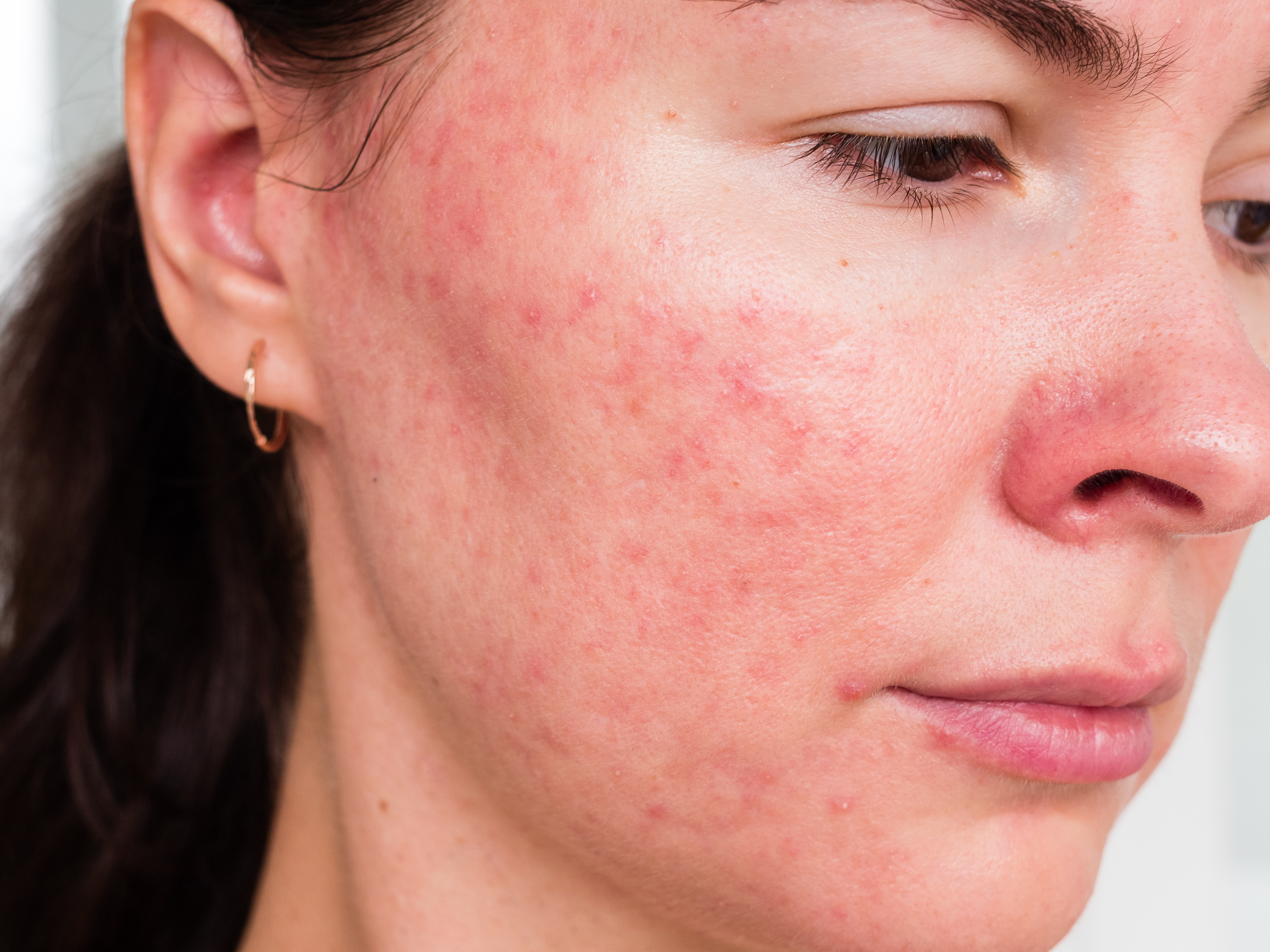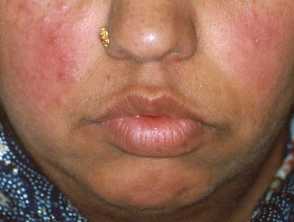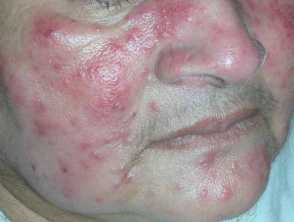Rosacea
If you're experiencing persistent facial or eye symptoms, book an appointment with Pinehurst Dermatology & Mohs Surgery Center today for a comprehensive diagnosis and individualized treatment plan. Our team of specialists is here to help you restore your skin's health and boost your confidence.
Examples of Rosacea




What are the Symptoms of Rosacea?
- Facial redness.
- Acne-like bumps.
- Enlarged nose.
- Facial spider veins.
- Swollen or thickened skin.
- Burning sensation
- Flushing.
Causes of Rosacea
- Combination of genetic, environmental, and vascular factors likely contribute to its development.
- Abnormalities in the face blood vessels.
- Reaction to microscopic mites commonly found on the face.
How to Prevent Rosacea
While there is no guaranteed way to prevent rosacea, certain lifestyle modifications and skincare practices may help reduce the risk of developing symptoms or minimize their severity. Here are some tips to potentially prevent or manage rosacea:
- Sun Protection: Protect your skin from the sun by using a broad-spectrum sunscreen with at least SPF 30.
- Gentle Skincare Routine: Adopt a gentle skincare routine using mild, fragrance-free cleansers and moisturizers.
- Temperature Control: Stay cool in warm weather and protect your face from harsh winds in cold weather.
- Dietary Considerations: While there is no specific "rosacea diet," some individuals find that certain foods can trigger their symptoms. Pay attention to your diet and note any patterns in symptom aggravation.
- Avoid Harsh Skincare Procedures: Steer clear of harsh skincare treatments such as chemical peels or abrasive exfoliants, as they may irritate the skin.
- Use Hypoallergenic Products: Choose hypoallergenic and non-comedogenic skincare and makeup products to reduce the risk of skin irritation.
- Consult a Dermatologist: If you notice persistent redness, flushing, or other symptoms suggestive of rosacea, consult with a dermatologist for a proper diagnosis and personalized treatment plan.
Rosacea FAQs
Common triggers include sun exposure, hot or cold weather, spicy foods, alcohol, stress, and certain skincare products. Identifying and avoiding triggers can help manage the condition.
No, although rosacea can cause acne-like breakouts, it is a different condition. Acne is primarily caused by clogged pores, while rosacea is related to blood vessel issues and inflammation.
Yes, you should wear sunscreen if you have rosacea, as sun exposure is a common trigger. Opt for a broad-spectrum sunscreen with SPF 30 or higher, formulated for sensitive skin, and reapply every two hours when outdoors.
There is no cure for rosacea, but it can be managed with proper treatment by a dermatologist and lifestyle adjustments. Early diagnosis and treatment can help control symptoms and prevent the condition from worsening.
From Our QualDerm Family of Brands: Skin Health and Your Emotional Well Being
How to Treat Rosacea
To begin your personalized rosacea treatment plan, schedule an appointment with us now for expert guidance and care.
Featured Products
Check your local office for current stock!
Check your local office for current stock!
